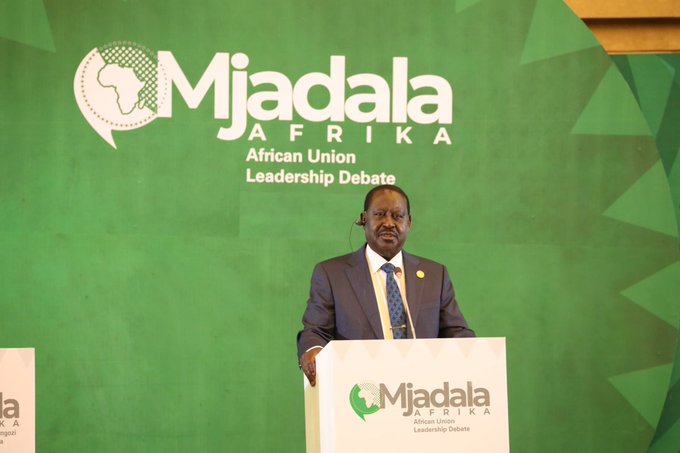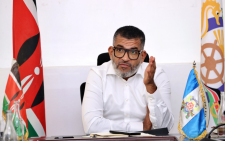AUC debate: Raila showed he grasps Africa’s issues

You can never be that which you have not become. But your story defines you, and you’ve got to tell your story. Your story is you and defines who you are and what you have become. Your story is not only your history but your character, and to a large extent, it lets people in on who you are. Interestingly, while you tell your story, you are likely to offend those with no story, unflattering stories, or simply those whose stories speak of lack of class, lack of integrity. Naysayers will be offended by your story because their stories present that side of who they are not but pretend to be
Today, Baba is on the brink of winning the AUC chair because his story not only speaks for itself all around the continent but also because he has eloquently and strategically narrated it throughout his service in public and he had echoes of his story during the “Mjadala Africa” debate. His performance in the debate was a masterclass in not just storytelling but in addressing Africa’s challenges with wisdom and foresight. Baba avoided the temptation to lay blame, choosing instead to focus critically on the causative aspects, for instance, of why Africa has not silenced the guns. He emphasised systemic issues and espoused strategic, actionable solutions to address these challenges. His calm measured tone and ability to diagnose root causes resonated with an audience keen on seeing a leader who understands both the issues and how they can be resolved.
In stark contrast, one of Baba’s main challengers seemed a bit dialectic in his approach – hard-hitting, while at the same time attempting to use examples that exposed both his understanding of granular issues but also glaring inexperience at the continental level and a dearth of diplomatic language. This approach was a conspicuous miss of the realities of who is voting in the AUC elections but credit to him, he excited a few Kenyans keyboard warriors who in terms of experience cannot complain of the company they keep. Baba, on the other hand, demonstrated an acute understanding of the need for tact, nuance, and collaboration, reinforcing his credentials as a statesman capable of uniting Africa through diplomacy and strategic leadership.
In the run-up to the last elections, a few leaders, wallowing in the excitement of the campaign trail, shockingly reminded us that we don’t need history. Whether the electorate listened to them or not, it does appear that both the electorate in these leaders’ backyards and these very leaders are now crying, frothing, and lamenting the folly of the campaign choices. They deceived their constituents into the fallacy of the “now and here”. Listened to choreographed empty rhetoric of Kenya’s political campaigns, politicians whose stories spoke of what they were, and clearly, they had never become what they professed. You see, when you don’t have a good story, when your leadership track record has nothing to write home about, you tend to push public interest conversations to veer off your story.
Chimamanda Ngozi Adichie says that it is impossible to engage properly with a place or a person without engaging with all of the stories of that place and that person. The consequence of the single story, she says, is that it robs people of dignity. In the world that we live in today, every story calls for multiple sources, and the most authentic and credible source of your story is you. Baba is winning the AUC chair because of his story. A story of stoic determination in fighting for a just society. A story that he articulated passionately during the debate, connecting his vision for Africa’s future to his struggles and triumphs as a reformist leader. Throughout this campaign period, his narrative of resilience, inclusivity, and development has crystalised to a tidal wave, reverberating across Africa and poises him on a pedestal as the first among equals.
Your story is who you are, and Baba’s story is one of triumph over adversity, unwavering dedication to the ideals of democracy, and a deep connection to the people he has served for decades.
— The writer is a PhD student in Political Communication












